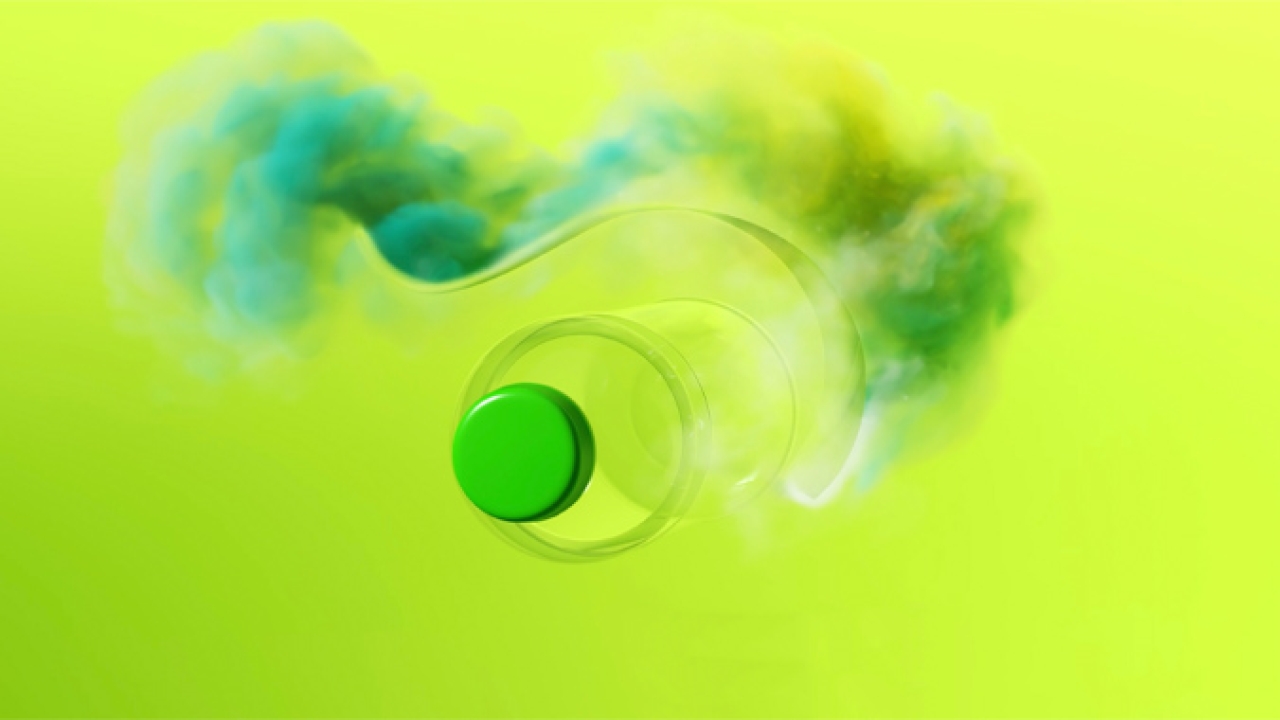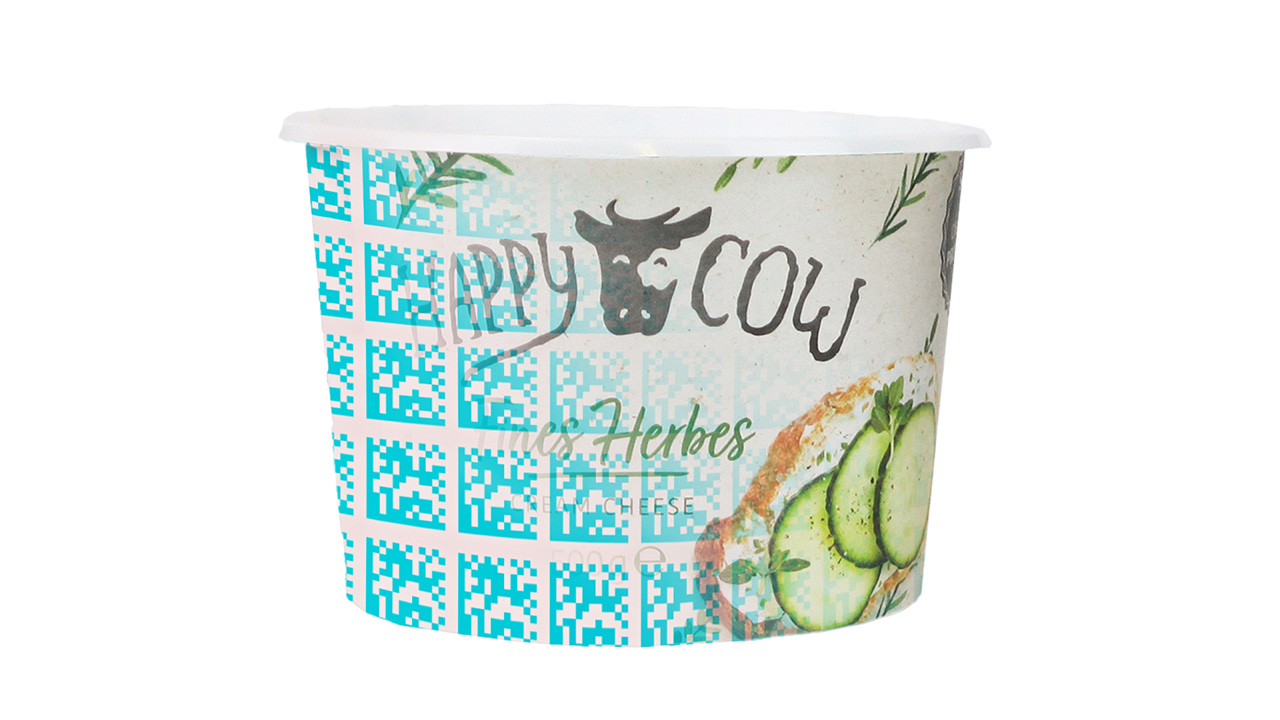Sustainable inks and coatings support circular economy

Governments worldwide are setting ambitious packaging recycling and emissions targets. Early in 2018 the European Commission launched a European Strategy for Plastics in a Circular Economy with ambitious targets for the plastics industry:
• All plastics must be recyclable by 2030
• 50 percent of plastics must be recycled by 2025
Furthermore, The European Commission has begun a review of the Food Packaging Regulations and impact on recycling aimed to be ready latest Q4 2022.
In addition to governmental demands, over 100 brand owners have signed up to the US Plastics Pact’s five-year plan. Commitments include using on average 30 percent of recycled or bio-based content by 2025, recycling 50 percent of plastic packaging by that date and making all plastic packaging reusable, recyclable or compostable. The plan also sets out a policy for identifying and phasing out harmful or unnecessary packaging materials, improving infrastructure and incentives to increase recycling.
The goal is to move from a linear economy – where materials are taken from the Earth, used and thrown away as waste – to a ‘circular economy’ where waste is turned into raw materials that are kept in use, reducing the need for virgin plastic.
The rates of plastic waste recovery must rise significantly – and fast. According to the Ellen Macarthur Foundation, a charity that promotes the circular economy, only 14 percent of plastic is recycled – the rest going to landfill, incineration or unmanaged dumping.
Flint Group Narrow Web saw the potential for significantly improving the sustainability of packaging through optimizing inks and coatings. The choice of ink used, along with the printing and drying process, will affect the recyclability and the overall eco-footprint of the packaging it is used for.
Difficulties with removing ink without staining plastic or affecting the recycling process have been an obstacle to recycling PET and polyethylene sleeves and bottles. The key driver is to prove that the recycled material (recyclate) is of sufficient quality to be reused without discoloration or changing characteristics of the plastic bottle.
Olsson says the Evolution Series has already attracted strong interest from brand owners as well as from converters since its introduction in September 2021
In Europe, there is an additional concern regarding the possible contamination of recyclates for food contact materials (non-intentionally added substances, or NIAS). There are guidelines from bodies such as RecyClass, and the European PET Bottle Platform (EPBP) that demand the use of non-toxic inks as classified by EuPIA, the European Printing Ink Association.
Sustainability guidance
In North America, Flint Group Narrow Web’s first action was to join the Association of Plastics Recyclers (APR). This association includes member companies at all stages of the packaging supply chain, working to enhance quality and increase supply of recyclable plastic.
The APR plays an important role in setting standards that are globally acknowledged, enabling products to be brought to market faster. It also provides design guides to help producers create recycle-friendly packages, rigorous testing protocols to evaluate a product’s recyclability, and recognition programs for innovations that are designed to be recycling-compatible.
These laboratories and test facilities enable a faster switch to approved sustainable coatings by label and packaging converters
For a sustained circular economy to work, a sustainable innovation must ensure quality and be economically viable – it must not add complexity, but increase efficiency within the production process. If an innovation compromises the process, there is less likelihood that the supply chain will invest in it or adopt it.
This was the philosophy behind Flint Group’s new Evolution Series of ink and coating products. The series will deliver greater recyclability and reduced CO2 emissions (LED curable).
Flint Group set up a sustainability task force to bring the new products to market, including Dr Paulo Vieira, research and development director, packaging and narrow web, USA; Niklas Olsson, brand manager, narrow web; and Chris Price, technical manager, UK & Ireland.
‘Evolution is based on a “plug and play” approach,’ explains Dr Paulo Vieira. ‘This means a proven, sustainable coating can be introduced, and the same quality can be achieved without further changes to the converting process. Such a solution means the supply chain can achieve a step change in, for example, the recovery of recyclable plastic, with minimal disruption or added costs in the converter’s workflow. Furthermore, each product within the Evolution Series has achieved APR recognition after rigorous testing, accelerating and simplifying the verification and adoption process.’
Boosting PET recyclability
The first two products in this series, both UV flexo, assist in boosting the recyclability of PET packaging with shrink sleeves or self-adhesive labels.
The first product is the Evolution Deinking Primer, which causes an ink to release from crystallizable polyester shrink sleeves (cPET) in the recycling process without contamination. The primer keeps the ink anchored to the substrate through the usable life of the sleeve. But when the substrate is immersed in a caustic bath, the ink is removed from the sleeve material without staining the valuable bottle flake. Both PET sleeve and bottle are then rinsed and pelletized into recycled polyester (rPET) for reuse.
The second product, the Evolution Caustic Resistant OPV, is an overprint varnish to facilitate recycling of PET bottles utilizing pressure-sensitive labels. The varnish minimizes contamination of the wash water and bottle flake in the caustic bath by keeping the ink secured to the label substrate. When immersed in the float-sink bath, the label is released from the bottle and floats to the surface where it is separated from the bottle recycling stream.
‘We are developing further solutions, for example FCM (food contact materials) compliant coatings, and coatings to improve the recyclability of other plastics such as HDPE,’ says Chris Price. ‘We are also addressing the safety of water-based inks. In the latter case, we are exploring the possibility of replacing volatile organic compounds (VOCs) with bio-renewable products in their ink formulation.’
Laboratory testing
Flint Group’s laboratories in the US and Europe are focused on developing new sustainable products, following the relevant guidance, procedures and test methods in different global markets. The labs feature state-of-the-art narrow web presses and test equipment that replicates the conditions of the recycling process as well as a fully equipped migration testing laboratory. Working with major substrate and labelstock manufacturers, coating and material performance are assessed from a number of perspectives.
What are the Key Performance Indicators (KPIs) for an efficient recyclable coating? Dr Vieira explains: ‘First, a sustainable coating needs to perform in the same way as conventional counterparts before recycling. Tests include maintenance of color, shrinkability, ink anchorage, yellowing and resistance properties for instance. Second, at the recycling stage, there are additional attributes to measure. Recycled PET is only valuable in its clear state – free from stains, haze or discoloration. So, we measure the L*a*b* color values of the plastic pellets, to ensure the coating causes no color change.
‘Third, we look for any impact on the pellet formation and extrusion process. All non-recyclable material must be removed in the bath before these stages, to avoid clumping of the plastic, with the risk of melting and machine damage. Any contamination can result in rejection of the complete recycled batch to landfill.
‘Finally, we investigate the impact on the washwater to ensure it meets stipulated requirements. The Deinking Primer for instance, meets this expectation by acting as a fine powder that can be filtered after removal from the substrate.’
These laboratories and test facilities enable a faster switch to approved sustainable coatings by label and packaging converters. The facilities are able to plan and run experimental or commercial jobs with customers seeking to adopt a new coating. The job would be run both with and without the new product, from file to print. After washing, a lab report can be generated on how the substrate washes. A successful performance would mean the converter gains a product in their portfolio that they can offer to brand owners. This would allow the converter to engage in formal critical guidance testing using certified institutions in their respective locality. Best case timescales from initial discussion to product roll-out are two to three months. Testing of customer printed material supported in the field by Flint Group personal can also be evaluated.
‘At industry conferences on sustainability, we often debate what the best approach should be on boosting recycling, and meeting sustainability targets,’ says Niklas Olsson. ‘For suppliers at least, the answer is “every little helps” – but with only a short time-frame to do so, collaboration is vital.’
Olsson says the Evolution Series has already attracted strong interest from brand owners as well as from converters since its introduction in September 2021.
‘By providing both a dedicated product program along with testing and R&D facilities, we expect to help sustainable coatings and inks play an important role, in helping the industry rise to the challenge,’ concludes Chris Price.
Stay up to date
Subscribe to the free Label News newsletter and receive the latest content every week. We'll never share your email address.


